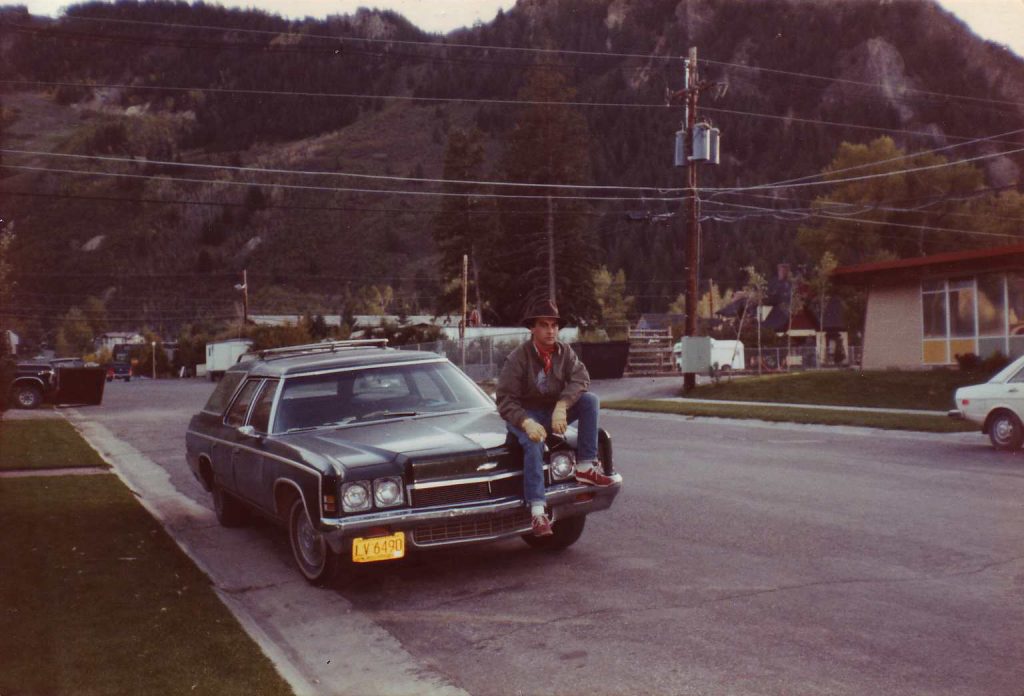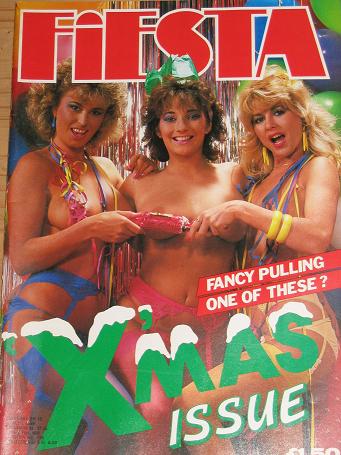About this time a while ago I drove across America in a $200 Chevrolet. I’d haggled the price down and bought it after I found it in Wisconsin where I was working in my first, most memorable job, teaching kids to shoot on a summer camp.
We’d put up the flag in the morning, do breakfast, clean the cabin in those not-so-dear dead days when safeguarding hadn’t been invented, which meant you had to sleep in the same pre-teen room as twelve ten-year-olds, or ten twelve-year-olds. I could never remember which. Most days I’d be on my shooting range, teaching, but some nights we’d get a pass off-camp. I’d get in my car and drive to Eagle River, or because the only thing interesting there was a gunsNgifts shop where I stupidly didn’t buy the 1840s percussion Aston pistols they were practically giving away. Nobody seemed to know what they were, hanging from a nail in the ceiling; take ’em away for $50 apiece. Take ’em both for $75. They must have been there practically from the end of the Civil War.
Gene Fleck’s Meadow Inn Bar was a much more interesting place. It had a bar, for a start. Gene was a Hungarian refugee from the 1956 Russian invasion. He was into guns too, but to be fair, most people had a gun around the house somewhere. Gene’s was a useful Remington 742, a semi-auto with a scope. Gene, like most people around there, used it to take down deer in winter. With the old US wartime 30-06 rounds he could have taken down walls with it. Before that I’d never been in a bar where I was passed a rifle with my drink and told to have a look at it.
But the Meadow Inn Bar had other good things going. Like girl camp counsellors from other nearby camps. One of them ended-up inviting me to her parent’s house after summer camp ended. I’d been meaning to take a drive anyway. The house was in a place called Greencastle, which was as close to Bedford Falls as you could probably hope to get. Railroad tracks split the town in two; Nancy-Jean’s (no, really) folks lived in one of the bigger 1960s houses up on the hill bordering the golf course. Naturally enough. Dad worked for IBM, Mom was a book-keeper at the sawmill across the tracks, there were two cars in every garage, a V1 rocket on a plinth brought home by Our Boys after they done saved Yerp with Patton. Dillinger robbed the bank there in 1932, there was a town square, a courthouse, a diner, a McDonalds, pre-Civil War houses, a university and a rodeo. Apart from the total lack of a bookshop or anything remotely similar to one it sure looked like heaven to me, coming from 1980s Wiltshire.
I worked for about a week in the sawmill there. Like a refugee from a Springsteen song I worked construction on what had been an orphanage. The stone pillars around the Gone With The Wind front door were fake. I found out when I tapped one. They were cast iron and hollow, made in Birmingham, Englandshire, according to the casting on the bottom of them. The names of some of the teachers there were carved into the cellar steps dating from 20 years before and there was a room upstairs I wouldn’t have cared to sleep in, despite it being broad daylight every time I went there in my workboots and bandana.
I drove out on I-70 and got to Aspen, hunting Hunter Thompson (note to self for next life a) do not hunt down teenage idols b) if you have a goal, have another one handy for when you achieve the first one). I came back to London, left London, moved to Suffolk, went back to New York, San Diego, Cupertino and D.C. but somehow never quite made it back to the middle of the Mid-West in a $200 Chevrolet. Early on in lockdown though, I walked past a car restoration place and there she was, in about the same state, the same old Kingswood Classic, even the same colour.

Sometimes I Googled Greencastle to see what was going on. Tornados that pulled houses apart, Bike rides to see all the covered bridges on gravel roads. Not much. Not much ever did. The nice houses up by the golf course were a lot cheaper than I’d expect if they were in England, but that’s true of pretty much anywhere. A restaurant opened up in the courthouse square that looked like the kind of place the Dukes of Hazard would stop by to see Daisy working the lunch counter. Nancy-Jean’s mom died and I found-out why the house prices never rose that much. A year or two after I was there IBM shut the plant. When you do that in a town of 8,000 people you’re lucky if the whole place doesn’t curl up and die. I thought, back in London, that Springsteen songs were just about places that banged bits of steel together, populated by people too dumb to wear ear-protection. I didn’t even guess that IBM could do the same to a town with white-collar four-car families telling each other those jobs are going boys, and they ain’t coming back.
It was long ago and far away, as Meatloaf used to sing before he got Covid. It wasn’t so much better than it is today, for lots of reasons. But I’m older, and when you’re older you remember the places you can’t go to anymore, not least because they aren’t there, or if they are then you can’t possibly be the same person you were when you were there.
Somehow along the way I found A.E. Housman, whose poetry my school never even touched upon although it really ought to have done. I’d say this was pretty good advice to any Sixth Former, or anyone aged around 21 and gone.
When I was one-and-twenty I heard a wise man say, ‘Give crowns and pounds and guineas; But not your heart away; Give pearls away and rubies; But keep your fancy free.’ But I was one-and-twenty, no use to talk to me.
A.E. Housman
That’s not the stanza from A Shropshire Lad that comes to mind when I think about Greencastle though. It wasn’t the girl, the gunshop, the rodeo, the golf-club, my old car, not even the sawmill and the railroad tracks. It wasn’t John Dillinger, Hunter Thompson, cooking crepes in Aspen nor really, any of it.
It’s just that certain knowledge that time passes and like those jobs and house prices in Greencastle, it ain’t coming back. Those are the Greencastle blues. They’ll go, as all things do, but this summer night they’re back for a while.
Into my heart an air that kills from yon far country blows. What are those blue remembered hills? What spires, what farms are those?
That is the land of lost content, I see it shining plain. The happy highways where I went and cannot come again.
Housman, A Shropshire Lad Stanza XL


